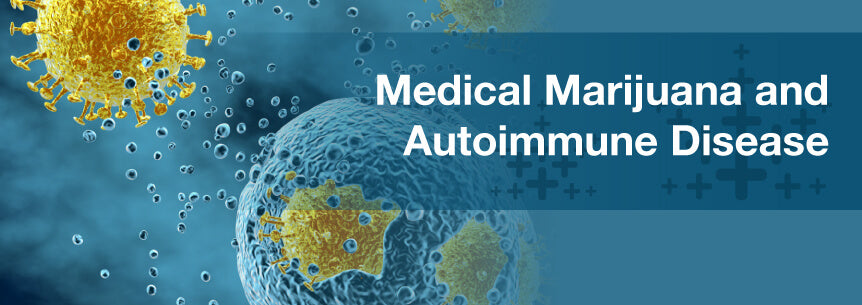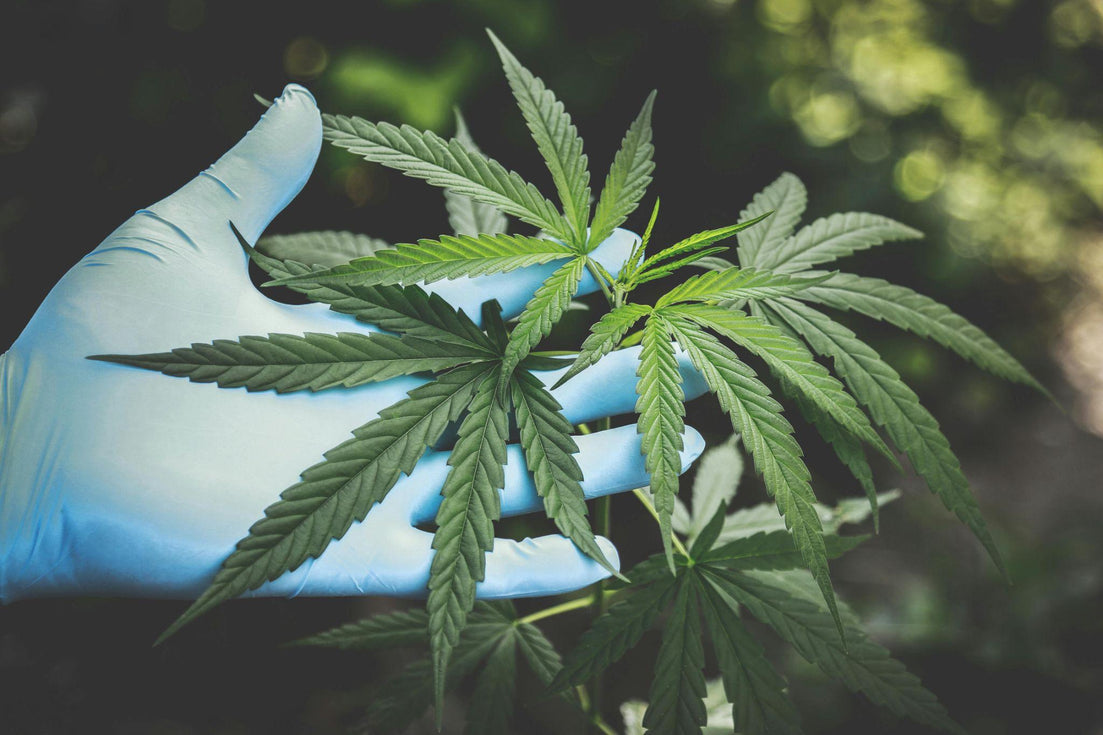Your cart is currently empty.

Autoimmune diseases are tricky things. Each of them is slightly different, but the one thing they have in common is that the immune system of someone suffering from one will attack some substance in the body as if it were an infection. Finding treatments for these conditions is very difficult and complicated, but scientists are trying to learn more about alternative treatments that we've yet to try. In this article, we're going to explore the potential marijuana could have as a treatment for these conditions.
Autoimmune Diseases Explained
Autoimmune diseases occur when the immune system gets hyperactive and mistakes the cells within the body as foreign invaders. In autoimmune diseases, your body produces antibodies in response to very specific organ tissues, rather than to pathogens.

PHOTO COURTESY OF @ALEXISTMORAN
The antibodies targeting organ tissues signals to the immune system that this tissue is supposed to be destroyed by the T-cells.
Autoimmune diseases come in many shapes and sizes, targeting different tissues. For example, in some, antibodies against neurons in the brain are abundant, but in others, there may be antibodies against certain enzymes or cell receptors.
The following are the most common autoimmune diseases:
- Rheumatoid arthritis - cartilage in the joints is targeted
- Systemic lupus - a wide variety of organs are targeted including kidneys, skin, joints, and the brain
- Celiac disease - tissue in the small intestine is targeted as a response to gluten
- Psoriasis - immune dysfunction in the skin
- Hashimoto's disease - the thyroid gland is targeted
- Type 1 diabetes - insulin-producing glands in the pancreas are targeted
- Multiple sclerosis - myelin that surrounds neurons is targeted
There are no cures for autoimmune diseases.
What Can Cannabis Do?
Compounds within marijuana, known as cannabinoids, directly engage with immune cells, creating valuable and significant changes in the body, giving the drug its power to fight cancer, neurological disorders, autoimmune diseases, and swelling. This is all because of the amazing endocannabinoid system (ECS).
The ECS and Immune Function
The compounds in cannabis, known as cannabinoids, interact with cannabinoid receptors in our body. These receptors are a part of the ECS. These receptors provide a way for your cells to get messages and respond to communication. The ECS does this through the use of endocannabinoids, which are the cannabinoids we make in our own body.

THE ECS AND THE IMMUNE SYSTEM ARE CLOSELY CONNECTED. PHOTO BY @KRISDAVIDGE27
The cannabinoids found in cannabis pair up with these same endocannabinoid receptors when cannabis is consumed. This helps to facilitate communication and rectify any deficiencies within the ECS.
Researchers have discovered that the ECS could play an important role in regulating the immune system. Endocannabinoid levels rise when there is a threat from pathogens. Endocannabinoids also help to turn the immune system off.
Cannabis and the Hyperactive Immune System
When cannabinoids engage the endocannabinoid receptors in autoimmune cells, they suppress the immune system. While suppressing the immune system could cause some medical risks, research has shown some promising results as well. More research is needed to fully understand the impact and benefits this course of action could cause.
Inflammation and Autoimmune Diseases
Inflammation occurs when damage is done to the tissue, which is why it occurs so commonly in those with autoimmune diseases. In response to the damage, cells secrete a variety of compounds to trigger blood vessels to leak fluid into the damaged area. This swelling keeps the threat from spreading to other areas of your body. They will also signal immune cells to rush to the area and handle the problem.

CBD AND OTHER CANNABIDIOLS IN CANNABIS CAN HELP WITH INFLAMMATION. @CHASING_MY_BEST_LIFE
This all causes chronic inflammation in those with autoimmune diseases, which keeps your body from functioning properly. This inflammation also causes serious damage over time.
In order to experience relief from autoimmune diseases, you need to calm the response of the immune system and minimize the inflammation.
Cannabis and Inflammation
This is where cannabis comes in. Research conducted in 2014 found that cannabis can make changes to specific molecules known as histones, which are responsible for gene expression, in a way that suppresses inflammation.
Other studies have shown that cannabinoids downregulate cytokines, which are inflammatory proteins. When studies were conducted in 2008 on type 1 diabetes and CBD, they found that it caused cytokines levels to decrease and anti-inflammatory protein levels to increase. The immune imbalance, as a result, was tentatively corrected by the CBD.

PHOTO BY @_LANAVO
Another study conducted in 2014 also found cannabis to be an effective treatment for Crohn's Disease.
Cannabis and Type 1 Diabetes
In research conducted in 2001, THC was found to give mice lower incidences of hypoglycemia and a significant decrease in the loss of insulin. Other studies have shown that cannabis could be helpful in managing certain other symptoms of diabetes, like neuropathy and retinopathy.
Cannabis and Rheumatoid Arthritis
In 2013, researchers found that cells taken from RA patients had more CB2 receptors in their immune cells. The increased number of receptor sites could indicate that the cells are demanding more endocannabinoids, meaning that for some reason, the cells need more endocannabinoids to function correctly.

PHOTO BY @OAM_CT
A 2003 study found that CBD decreased inflammation in a dose-dependent fashion and that the inflammatory markers continued to decrease with consecutive treatment.
Cannabis and Crohn's Disease
Though CB2 receptors are most commonly associated with the immune system, research suggests that Crohn's (CD) patients have increased expression of CB1 receptors in both the brain and the gut and high levels of endocannabinoids anandamide and 2-AG in the intestines.
Just like with RA, the overexpression of these receptors could be indicative of cells requiring more cannabinoids. This is promising that cannabinoid treatment could have therapeutic benefits for the disease. They also found that cannabinoid treatment could reduce inflammation in the gut.

THIS BEAUTIFUL BUD IS BROUGHT TO YOU BY @PATHFINDERFARMS
There's a lot of research available and still underway involving cannabis's efficacy in treating autoimmune diseases, of which we've just barely scratched the surface. For now, only time will tell what research will discover and whether or not patients all over the country will have better access to this potentially life-changing medication or not.



